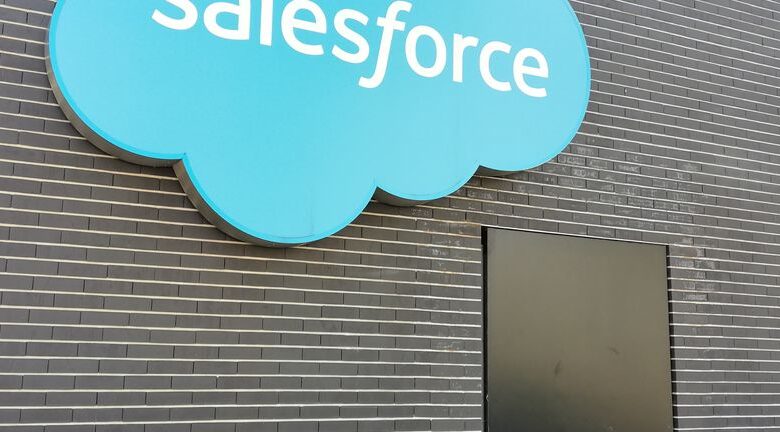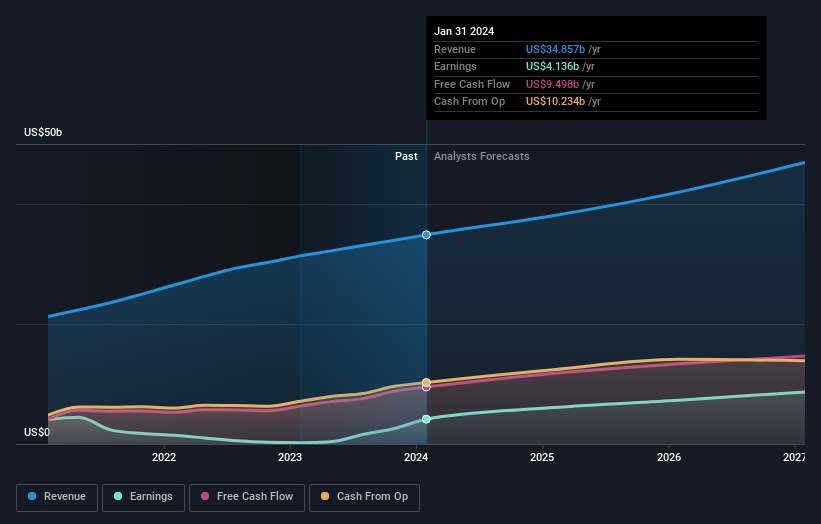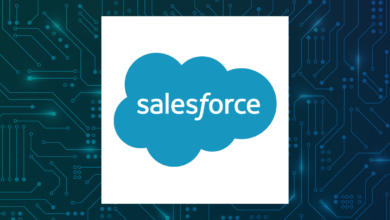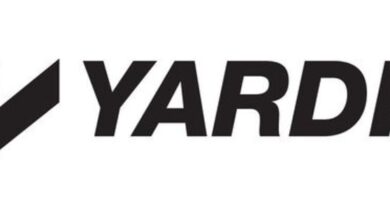With 82% ownership of the shares, Salesforce, Inc. (NYSE:CRM) is heavily dominated by institutional owners

Key Insights
- Significantly high institutional ownership implies Salesforce’s stock price is sensitive to their trading actions
- The top 25 shareholders own 50% of the company
- Analyst forecasts along with ownership data serve to give a strong idea about prospects for a business
Every investor in Salesforce, Inc. (NYSE:CRM) should be aware of the most powerful shareholder groups. And the group that holds the biggest piece of the pie are institutions with 82% ownership. Put another way, the group faces the maximum upside potential (or downside risk).
Given the vast amount of money and research capacities at their disposal, institutional ownership tends to carry a lot of weight, especially with individual investors. Therefore, a good portion of institutional money invested in the company is usually a huge vote of confidence on its future.
Let’s take a closer look to see what the different types of shareholders can tell us about Salesforce.
Check out our latest analysis for Salesforce
What Does The Institutional Ownership Tell Us About Salesforce?
Institutional investors commonly compare their own returns to the returns of a commonly followed index. So they generally do consider buying larger companies that are included in the relevant benchmark index.
As you can see, institutional investors have a fair amount of stake in Salesforce. This implies the analysts working for those institutions have looked at the stock and they like it. But just like anyone else, they could be wrong. It is not uncommon to see a big share price drop if two large institutional investors try to sell out of a stock at the same time. So it is worth checking the past earnings trajectory of Salesforce, (below). Of course, keep in mind that there are other factors to consider, too.

Investors should note that institutions actually own more than half the company, so they can collectively wield significant power. Salesforce is not owned by hedge funds. Our data shows that The Vanguard Group, Inc. is the largest shareholder with 8.6% of shares outstanding. In comparison, the second and third largest shareholders hold about 7.5% and 4.7% of the stock. Furthermore, CEO Marc Benioff is the owner of 2.4% of the company’s shares.
A closer look at our ownership figures suggests that the top 25 shareholders have a combined ownership of 50% implying that no single shareholder has a majority.
While it makes sense to study institutional ownership data for a company, it also makes sense to study analyst sentiments to know which way the wind is blowing. There are a reasonable number of analysts covering the stock, so it might be useful to find out their aggregate view on the future.
Insider Ownership Of Salesforce
The definition of company insiders can be subjective and does vary between jurisdictions. Our data reflects individual insiders, capturing board members at the very least. Company management run the business, but the CEO will answer to the board, even if he or she is a member of it.
I generally consider insider ownership to be a good thing. However, on some occasions it makes it more difficult for other shareholders to hold the board accountable for decisions.
We can report that insiders do own shares in Salesforce, Inc.. It is a very large company, and board members collectively own US$8.0b worth of shares (at current prices). Most would say this shows a good alignment of interests between shareholders and the board. Still, it might be worth checking if those insiders have been selling.
General Public Ownership
With a 15% ownership, the general public, mostly comprising of individual investors, have some degree of sway over Salesforce. While this size of ownership may not be enough to sway a policy decision in their favour, they can still make a collective impact on company policies.
Next Steps:
It’s always worth thinking about the different groups who own shares in a company. But to understand Salesforce better, we need to consider many other factors. For example, we’ve discovered 1 warning sign for Salesforce that you should be aware of before investing here.
If you are like me, you may want to think about whether this company will grow or shrink. Luckily, you can check this free report showing analyst forecasts for its future.
NB: Figures in this article are calculated using data from the last twelve months, which refer to the 12-month period ending on the last date of the month the financial statement is dated. This may not be consistent with full year annual report figures.
Valuation is complex, but we’re helping make it simple.
Find out whether Salesforce is potentially over or undervalued by checking out our comprehensive analysis, which includes fair value estimates, risks and warnings, dividends, insider transactions and financial health.
Have feedback on this article? Concerned about the content? Get in touch with us directly. Alternatively, email editorial-team (at) simplywallst.com.
This article by Simply Wall St is general in nature. We provide commentary based on historical data and analyst forecasts only using an unbiased methodology and our articles are not intended to be financial advice. It does not constitute a recommendation to buy or sell any stock, and does not take account of your objectives, or your financial situation. We aim to bring you long-term focused analysis driven by fundamental data. Note that our analysis may not factor in the latest price-sensitive company announcements or qualitative material. Simply Wall St has no position in any stocks mentioned.



